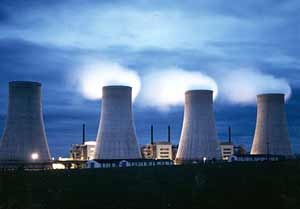
Working to discern patterns of environmental disinformation in an online world
For the past eight years, disinformation has dominated news around elections all over the world. Despite this, it is still a widely misunderstood con...
News

Publish date: November 16, 2011
Written by: Charles Digges
News
In parallel, the UK’s University of Bristol and Oxford University have joined forces to open the Nuclear Research Centre (NRC) joint venture, which will focus on training a skilled workforce for Britain nuclear workforce, World Nuclear News, the website of the London-based World Nuclear Association, reported.
Both projects represent in the eyes of environmentalists massive expenditures on creating new nuclear waste from new nuclear build-outs in Britain, which is already groaning under the weight of Sellafield’s cold war legacy – one of the world’s largest – that will take decades to dismantle.
Further, Britain has no realistic plans for where this accrued waste should be stored – a problem that it shares with every other country in the world with a nuclear power programme.
“The UK should focus its efforts on minimizing the risk at Sellafield and cleaning up the legacy waste at Sellafield, before it uses its resources to build a new nuclear plant,” said Bellona nuclear physicist and executive director Nils Bøhmer.
“The UK should also speed up its work to develop a long-term solution for the spent nuclear fuel that already exists instead of building new nuclear plant that will generate more spent nuclear fuel, whose final destination at present is unknown,” said Bøhmer.
But Britain has held firm in the post Fukushima-era to the advancement of nuclear power, unlike many large European economies like Germany, Switzerland, Italy and Belgium, all of whom are either abandoning their nuclear power capacities or have voted not to begin building nuclear facilities to begin with in the wake of the Japanese disaster.
Germany will be phasing out its nuclear power plants in favour of renewable energy by 2022 and Switzerland is following suit in 2034. Belgium has said it will shutter its oldest plants by 2015, with the remainder to come offline by2025, dependent on whether the country can find alternative power sources. And Italy voted overwhelmingly in a summer referendum not to even start a nuclear programme.
Even Japan has opted for a 40-year nuclear phase out plan.
But Britain plans to build its new generation nuclear power plant next to Sellafield, which is a site under the purview of the British Nuclear Decommissioning Agency (NDA), the NDA itself confirmed in a release January of 2009.
That the NDA – whose mandate is to decommission and dismantle Sellafield and 10 other Cold War sites throughout Britain – would be selling land for construction of a new nuclear power plant is somewhat contradictory.
Yet, earlier this month, NuGeneration’s plans to construct a new nuclear power plant alongside the Sellafield site in Cumbria moved a step closer after the local council gave the go-ahead for site characterization works to begin, WNN reported. NuGen has an option to buy lands for site investigations aimed at building the new nuclear power plant from the NDA for some £70 million ($112 million), said the agency.
NuGen confirmed that site investigations will be used to determine which part of the NDA land is best suited for the new nuclear power plant.
Site investigations are expected to be completed and submitted for investment plans in 2015. The new plant is expected to be commissioned in 2023.
Oxford and Bristol Universities’ Nuclear Research Centre will apparently furnish the new work force for this plant, as some 70 percent of the UK’s skilled nuclear workforce is scheduled to retire by 2025, said WWN.
The universities say the centre will be of “national and international importance in nuclear research” and “aims to provide leading edge and innovative research to support the design and safe operation of current and future generations of nuclear systems.”
Speaking at the November launch event, British Energy Minister Charles Hendry was quoted by WWN as saying: “This centre will ensure that the UK remains the vanguard in deploying the next generation of new nuclear power stations across Europe and ensures that the UK and the local economy can derive maximum benefit from these opportunities.”

For the past eight years, disinformation has dominated news around elections all over the world. Despite this, it is still a widely misunderstood con...

A ruling by the European Free Trade Association Court that Norway’s continental shelf falls under the European Economic Area Agreement could dramatic...

Bellona held a seminar on countering Russian disinformation in the Arctic at the Arctic Frontiers international conference in Norway

Our December Nuclear Digest, reported by Bellona’s Environmental Transparency Center, is out now. Here’s a quick taste of three nuclear issues arisin...